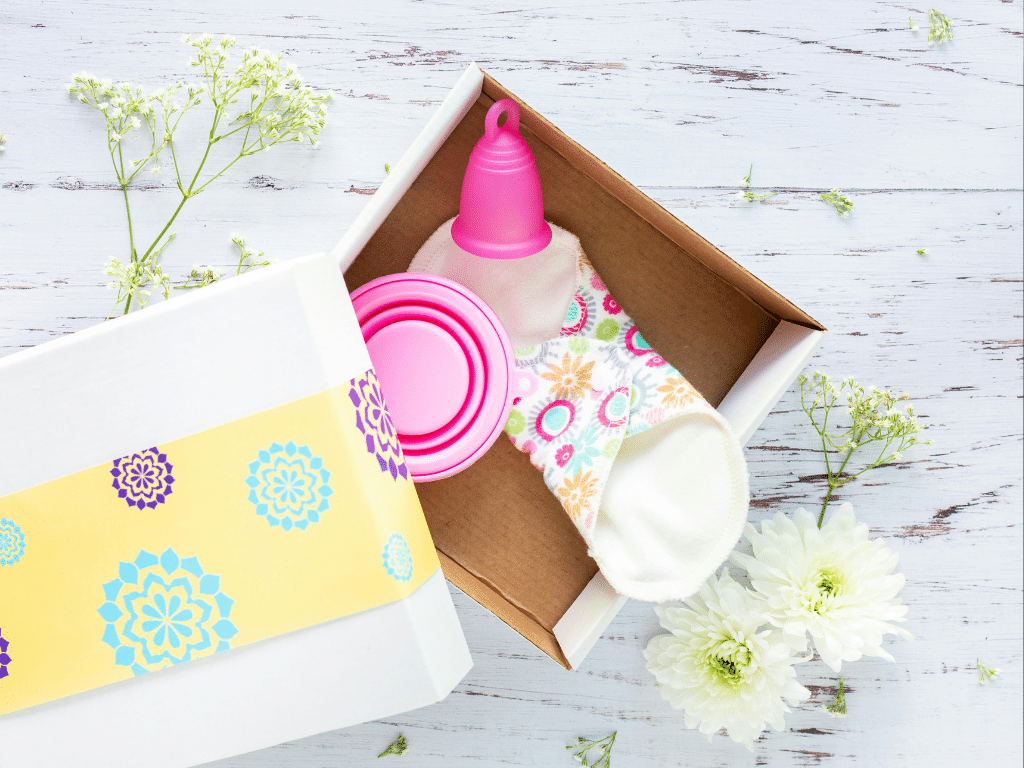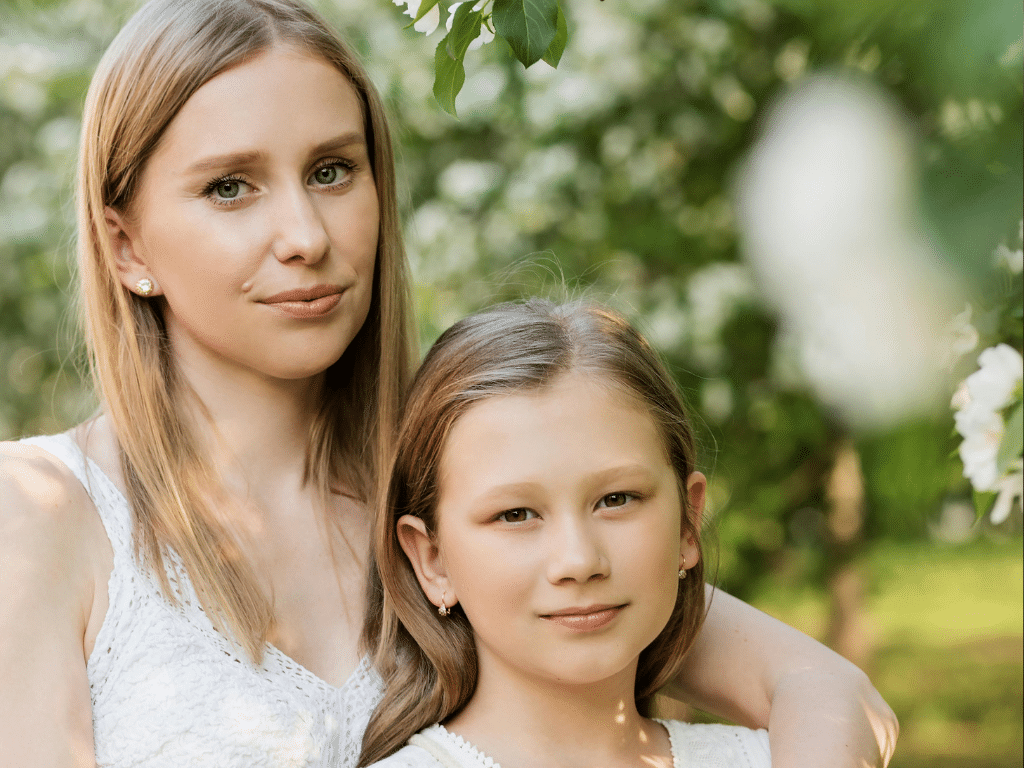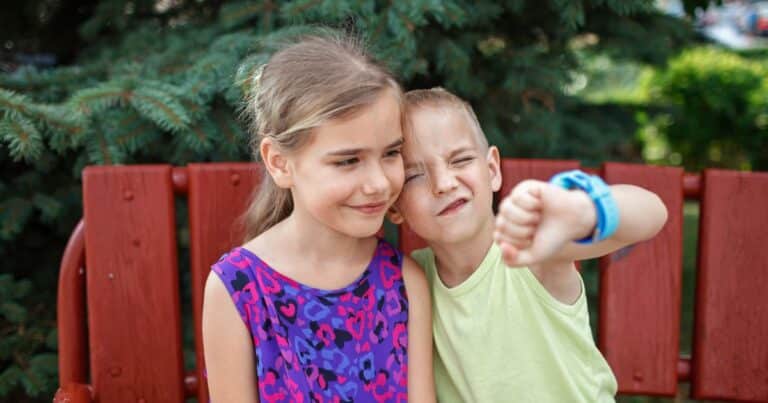
Oh, the period talk. Are you ever ready to discuss menstruation with your child?
Luckily (or unluckily, it depends on who you ask!), my kids have been brought up with the ‘Period Talk’ since they were about 8 and 10, respectively, so not much phases them. I have a son who is happy to hand me my menstrual cup in the shower and a daughter who regularly openly celebrates the arrival of her period undies in the post.
If you're preparing yourself to answer your child's questions about their first period, read on.
How to have the 'period talk'
Now, before you judge, I don't mean OVER celebrating. I’m merely referring to NORMALISING the conversation around menstruation with two humans, of which one will and does regularly bleed from her vagina and another who will be around people that do or are regularly bleeding from their vagina.
The earlier you open a discussion around period and normalise it with your kids, the better. First up, make it part of the body and puberty chat; there is no need to sensationalise anything. Heck, at the end of the day, this change is one of the most natural processes in the world, without which none of us would be here.
In my experience, people only weird out about stuff when you weird out about it!

Hormones! The physical and emotional changes
The scariest thing I’ve found over the years is just how little we talk about periods with our kids. Then, as a result, just how little adults know about even the simplest things, like the four phases of the cycle. Have you got any idea what happens in the luteal phase of yours, or even when that is?
The sooner our kids understand their cycle and what’s happening physiologically and emotionally at EVERY stage and phase, the more empowering it is as a woman. (If you are the dad, the more well equipped you can be as a bloke to support the females in your life.)
Knowing that they are able to get pregnant once their period starts might also make them more responsible around boys and sex. Knowing what will happen to them from a trusted family member can make them feel comfortable about their emotional and bodily symptoms.
Environmental impact
There’s so much more to the topic than just a period. There’s the environmental impact, the hygiene side of things (are you a ‘binner’ or a ‘flusher’, for example?!), the different cultural and traditional taboos and the range of menstrual products available nowadays.
Blood colour
Understanding what the colour of the fluids means, the fact that painful PMT isn’t something that ANY female should suffer from. Just because they have their period doesn’t then automatically mean that they sign up for some lifelong monthly pain debt that they may have clocked up in a previous lifetime.
Period poverty: what is it?
Then there’s period poverty (yup, that’s a thing) that (just quietly) is happening in your backyard – it’s not just a ‘developing’ world issue. What about trans-gender bleeding? Athletes, women fleeing domestic violence, disabled women, women in the defence force – how do they all manage their periods?
You can talk about and download period trackers, and you can myth-bust that all females living together bleed at the same time or that the cycle has to last for 28 days. You could even take bets on how much bleeding they think they'll lose every period.
There’s so much fun to be had with the period talk. At the same time, educate your kids on something fundamental to their development.
Should you trust Dad with period talk?
Another important thing is to talk about how they feel about discussing it with their dad, bearing in mind that they may or may not want to. It makes things a lot more complicated if they don’t want to. My research shows that the number one thing females wished their dads did when they were younger was to be able to at least talk about the topic and be happy to go and buy them the sanitary products they needed!
So, encourage the period to talk where you can or else it’s over to you! Oh, and remember, both parents need to make sure there are bins in the loos so your kids don’t have to come up with some ninja way of transporting blood-ridden pads and tampons from the bathroom to the bin in the kitchen – ewww!

FAQ: Helpful questions when preparing for the period talk
What should I include in the period talk with my child?
When getting ready to teach about periods, it's absolutely necessary to cover the basics. Start with what a period is, why it happens, and how the menstrual cycle works. Explain that it's a normal part of growing up; every girl goes through it.
Also, discuss the physical changes during puberty, like breast development and discharge. Share the different products they can use, like tampons and period underwear. Most importantly, reassure them that it’s okay to have doubts or feel uncertain when they get their first period.
How can I tell if my child is ready for period talk?
Every child is different, but signs of readiness include asking about their body or showing curiosity about puberty. If they have a friend who’s already started their period, that might spark some curiosity, too. You can also create a relaxed environment where they feel safe to speak about these topics. If they seem awkward but willing to listen, it’s a good sign they’re ready!
What are some tips for making the conversation more comfortable?
Start by creating a relaxed atmosphere. Choose a time when you won't be interrupted, maybe during a car ride or while cooking together. Use casual language and be open about your own experiences with menstruation. Make it clear that it’s a normal part of life, and they can always come to you with questions. If you're feeling nervous, you can even say it’s okay to feel awkward about it!
What should I do if my child has severe PMS or cramps?
If your child is experiencing severe symptoms, especially on the first days of a period, it’s important to take it seriously. Talk to her about how she feels and encourage her to keep a menstrual diary to track her symptoms. This can help you both identify patterns and potential triggers.
If their discomfort affects their daily life, consider consulting a healthcare professional for advice. Sometimes, physical activity can help ease those cramps, too!
What’s the best way to handle leaks or accidents during their first period?
It’s normal for your child to feel freaked out, especially if they have a leak or accident. Simply, the body is just doing its thing, shedding the uterus lining when an egg hasn’t been fertilised. It’s good to wear something like a panty liner or pad to feel more secure, especially if they’re planning to swim or hang out anywhere. Also, keeping a stash of supplies handy will make them more comfortable.
Finally, in talking about periods
In conclusion, discussing periods with your child doesn't have to be a daunting task. By normalising the conversation and providing clear, factual information, you can help them feel confident and prepared for this natural stage of life. It's important to cover not only the basics of getting their period but also the broader aspects, like emotional and physical aspects, the environmental impact, and even period poverty. Encourage them to feel easy speaking about their experience, whether with you, another trusted adult, or even their dad.
Remember, your openness helps shape their understanding and acceptance of their body. The first few days of their cycle might be a challenge, but by educating them early on, you're giving them the tools to embrace it. So, take this chance to start the conversation, address any concerns, and offer tips for discussing periods in a way that feels natural and empowering. Every child deserves to know that periods are a predictable part of life, and with your support, they can approach them confidently and easily.













